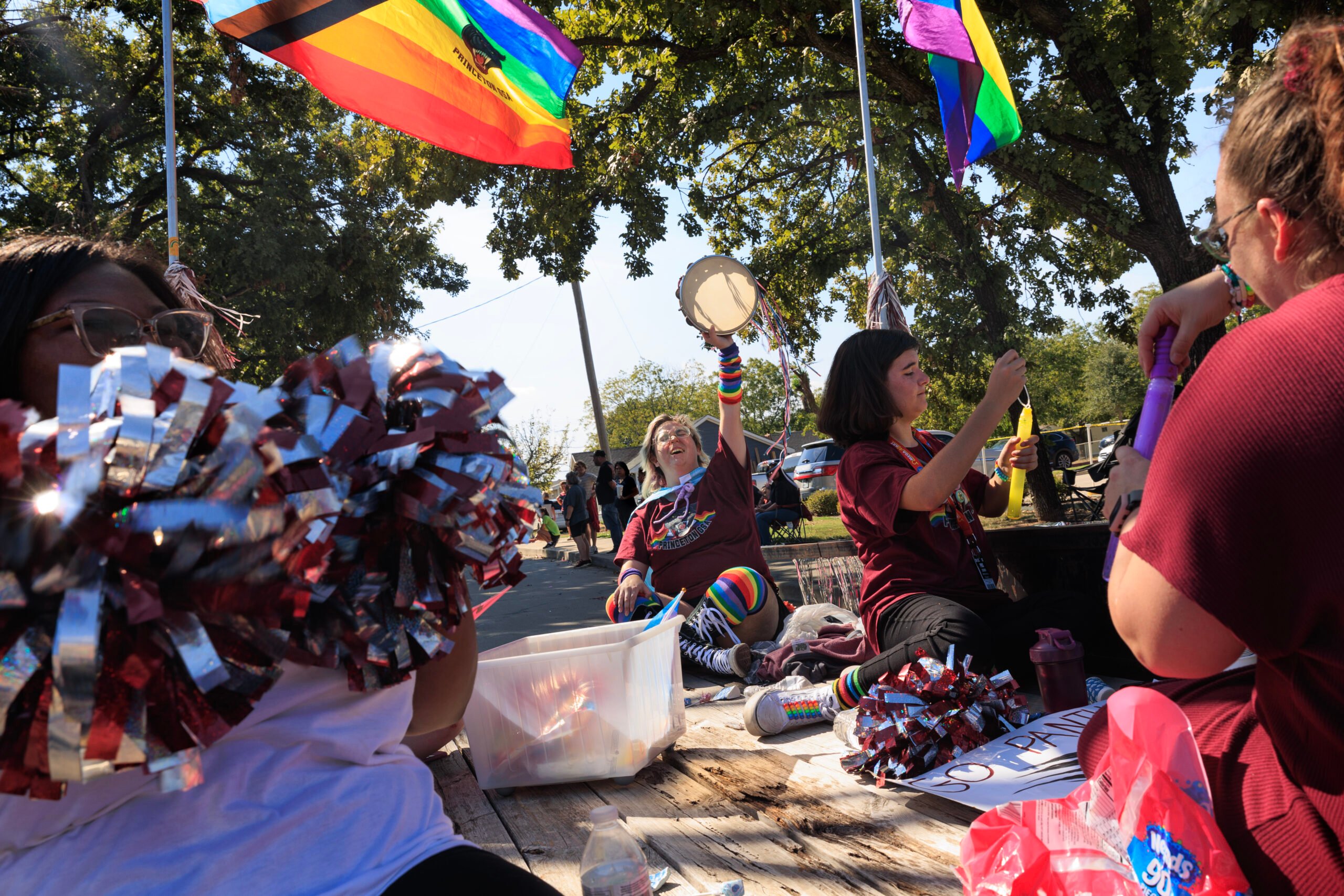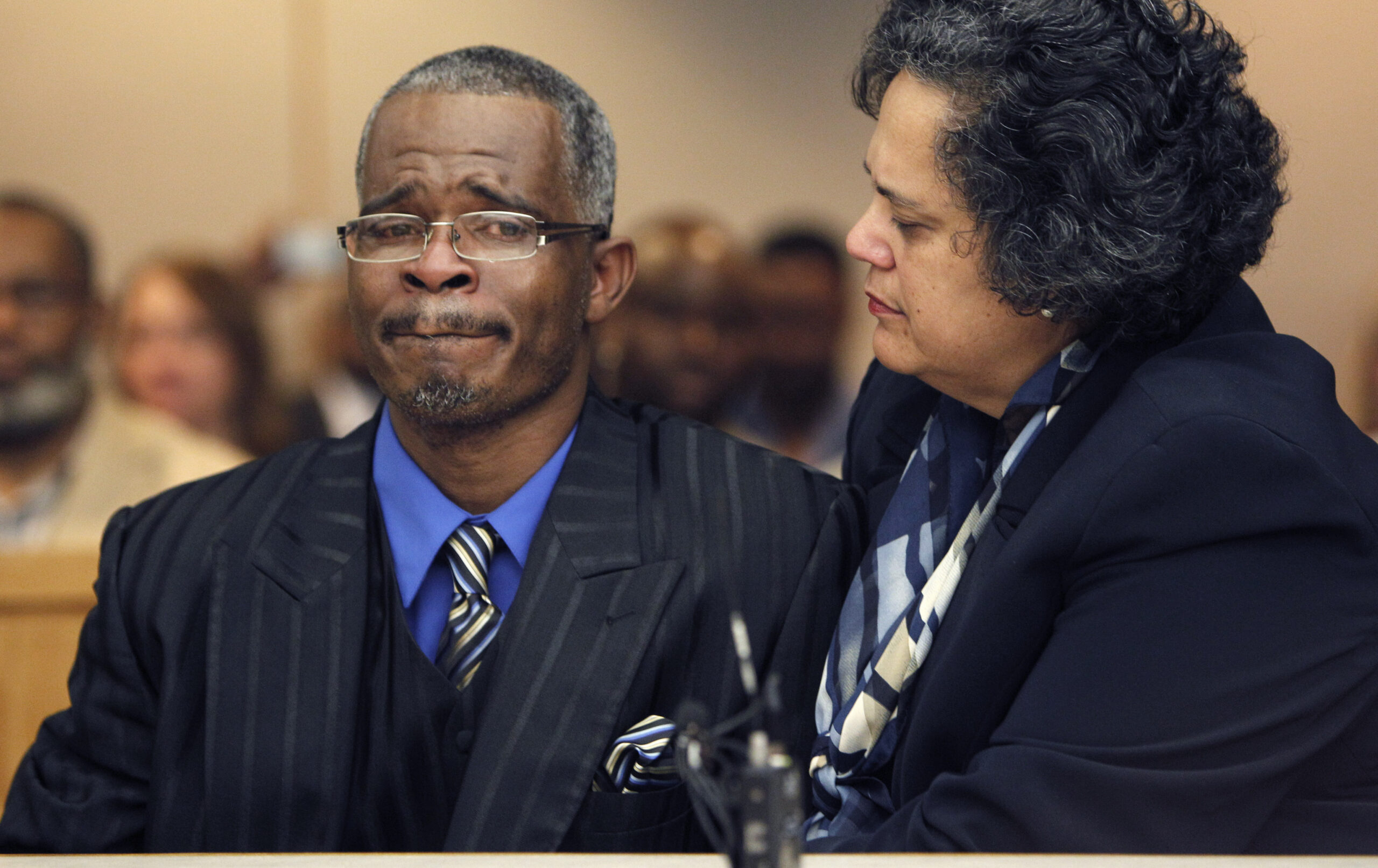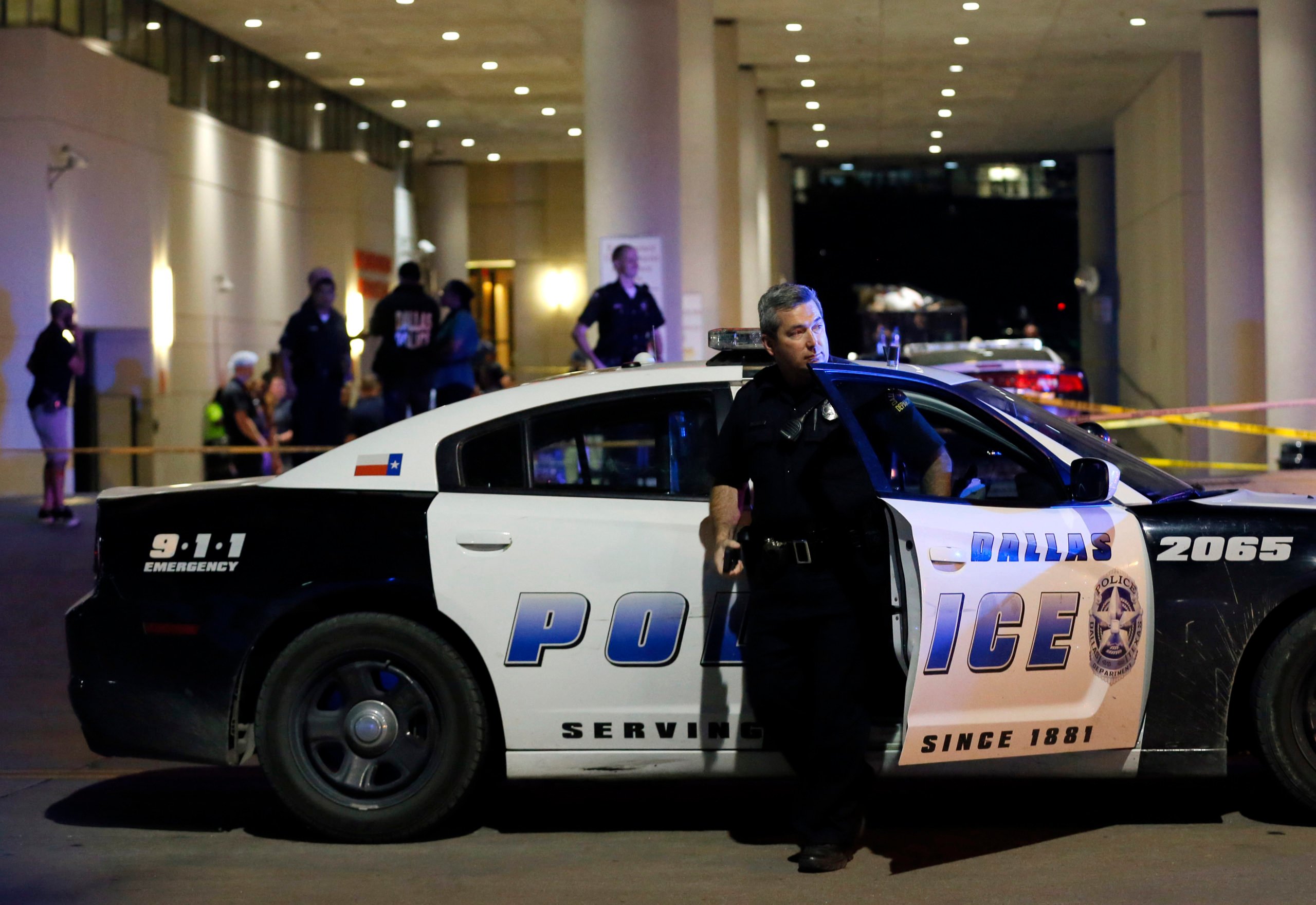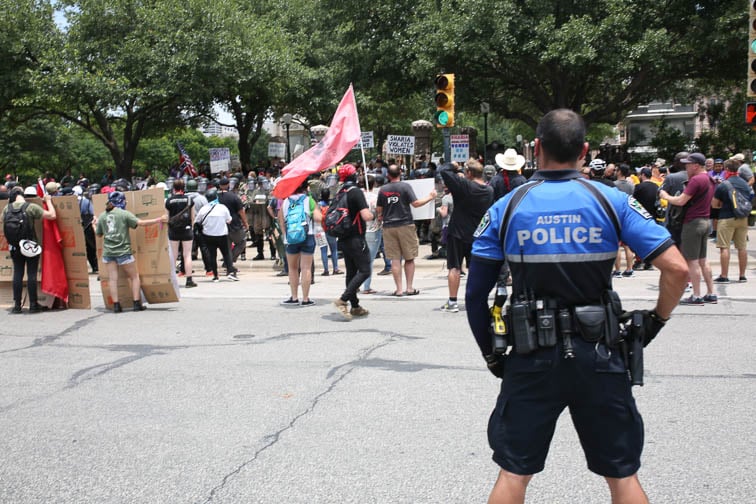
The Big Blue Obstacle to Bipartisan Criminal Justice Reform
In the era of right-on-crime-backed efforts to curb mass incarceration, police unions have increasingly become a voice in the wilderness.
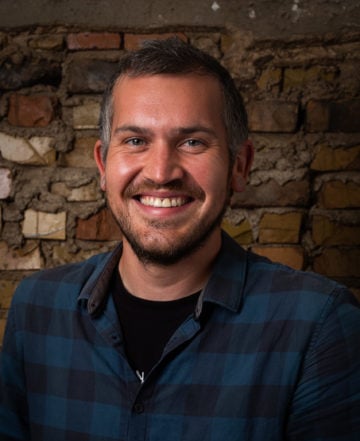
Jack Michael Ule’s death inside the Bexar County jail on April 18 struck a nerve. Arrested two weeks earlier for criminal trespass, a Class B misdemeanor, Ule appeared to be homeless and had no other criminal record in Bexar County. Court records indicate Ule, 63, was flagged for mental health issues, waived his first court hearing and stayed in jail even though a $50 bond payment could have secured his release. Bexar County Sheriff Javier Salazar, who said “ongoing health issues” appeared to be a factor in the death, issued a remorseful statement less than three hours after detention medical staff pronounced Ule dead. Jail, Salazar said, “should not be used to house the mentally ill or those who simply cannot afford to pay their way out.”
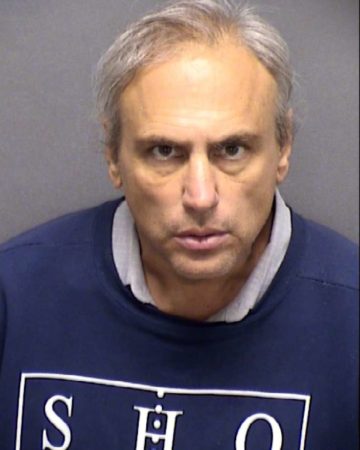
Two days later, Bexar County District Attorney Joe Gonzales directed prosecutors to drop criminal trespass charges in cases like Ule’s — whenever the defendant appears to be homeless, wasn’t arrested at a residence and has a clean record. The backlash from San Antonio’s cantankerous police union was immediate. San Antonio Police Officers Association President Michael Helle chastised the DA for giving criminals a pass. “Joe Gonzales has just given anyone who claims to be homeless the right to violate someone else’s business or property,” Helle said. “This is a total abdication of a DA’s responsibility.”
While swift reform following an in-custody death is a refreshing change, the knee-jerk police union opposition is predictable. Police groups have a long history of blocking reforms and pushing tough-on-crime policies. However, in this new era of bipartisan efforts to curb mass incarceration, police associations have increasingly become a voice in the wilderness.
While the state GOP platform calls for decriminalizing pot possession, groups representing rural and suburban police officials appear to have helped kill marijuana reform at the Texas Legislature this year after spreading lies and half-truths on the issue all session. Police unions have also opposed right-on-crime-backed bills to end the kind of “contempt of cop” situation that led to Sandra Bland’s needless arrest and subsequent death.
Last month, one of the state’s largest police officers associations called for the removal of Dallas County DA John Creuzot for doing what he said he’d do on the campaign trail: refusing to prosecute certain drug cases and changing how the office handles crimes related to poverty and homelessness. In Bexar County, Gonzales won last year after making similar promises to end mass incarceration. San Antonio’s police union backed Gonzales’ Republican opponent.
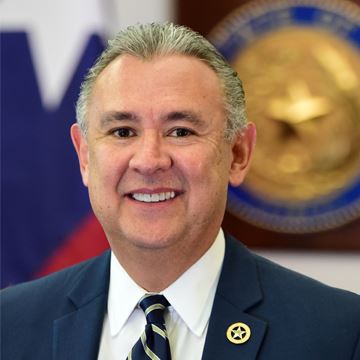
The San Antonio Police Officers Association is a case study in how police build and wield political power. In the late 1980s, Harold Flammia, a police sergeant who studied Saul Alinsky, ascended to the top of the union and drove it headfirst into local politics: phone banking before elections, publicly endorsing or opposing candidates and creating a political action committee to bankroll the union’s picks. Candidates who wouldn’t commit to better pay and equipment for officers were labeled anti-police. Within four years, San Antonio cops negotiated one of the best wage and benefits packages in the country, becoming an example for other unions to follow.
In addition to safeguarding those perks, the union has also fought against reforming how the department uses force and tried to oust Chief William McManus after he fired an officer in 2016 for killing an unarmed man. Later that year, despite protests by police accountability groups, San Antonio’s city council extended the union’s contract for another five years, leaving in place archaic disciplinary rules that shield officers who commit misconduct from scrutiny. (During the debate, Helle, the union’s president, compared Black Lives Matter activists to the KKK). In 2017, the union’s complaints to the Texas Attorney General’s Office — over a human smuggling bust where police released a dozen immigrants from Guatemala rather than turning them over to the feds — appear to have sparked a costly lawsuit against the city for allegedly violating Texas’ “sanctuary cities” ban.
“The first reaction (from police) is always going to be to protect the status quo.”
On criminal justice issues where left and right agree, low-hanging reforms still face a big blue obstacle in Texas, even if there’s reason to believe police union power has waned in recent years. While conservative right-on-crime groups generally support the kind of prosecutorial reforms Creuzot announced in Dallas last month, the hyperventilating from police unions devolved into absurdity when Governor Greg Abbott called the new policies “socialism” and “wealth redistribution by theft.”
Ron DeLord, a Georgetown lawyer who wrote the book on police organizing and represented Austin’s police union in its recent contract talks, insists cops aren’t necessarily opposed to reform. For instance, urban police unions generally don’t oppose pot decriminalization anymore. But he says it shouldn’t be surprising when unions buck against the kind of prosecutorial reforms recently announced in Dallas and San Antonio, especially if they aren’t brought into the decision-making process. He says police generally fear that people will be emboldened to break the law once prosecutors start changing how it’s applied.
“Police see crime on all levels, and so they don’t think a person who commits an offense, regardless of color or economic status, outta get a walk on that,” DeLord said. “The first reaction is always going to be to protect the status quo.”
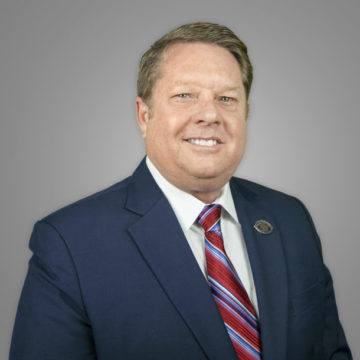
As for the Bexar County DA’s new policy, Helle explained his union’s opposition in more alarming terms.
Helle warned that under Gonzales’ new plan, San Antonio was “on the slippery slope to becoming Seattle or San Francisco,” both cities facing an intractable homelessness crisis. He groaned at the notion of officers encountering people they’d recently arrested back out on the street. “The homeless people will know the arrest isn’t going to matter,” Helle insisted. What are police supposed to do if the people they arrest won’t stay in jail?

